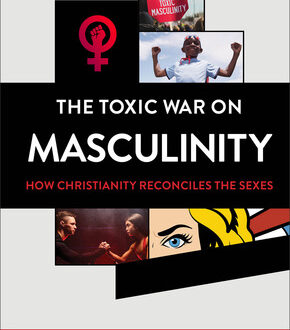Movie Review: Moms’ Night Out: A Laugh and a Missed Opportunity
Moms' Night Out, the movie starring Sarah Drew ("Grey's Anatomy") opened over the weekend, right in time for Mother's Day. And Christians filled theaters to see it. The film is clean, it's funny…and it's also a missed opportunity.
Drew’s character, Allyson, and her two friends — played with expert performances by Logan White and Patricia Heaton (Everybody Loves Raymond)— want just one thing: a peaceful night out eating food off a menu while enjoying uninterrupted adult conversation. But for that to happen the dads have to parent their kids for three hours. And they are incapable of doing so without endangering their offspring.
The film is billed as a “true-to-life comedy that celebrates the beautiful mess called parenting,” but most viewers will see little in the parenting that feels “true to life.” For starters, the husbands "babysit” (yes, they actually use that word) rather than “parent” while their wives go out. And the dads of small children in this film are so inept at fathering that they don’t even know their families’ emergency contact numbers. Naturally, the fumbling guys leave their kids with strangers and shady characters, and at least one child goes missing. But that’s the risk moms take when they abandon their children for a little “me” time, right?
The film, directed by the Erwin brothers (October Baby), is a cut above most Christian movies in that it has excellent production values and solid acting. Drew demonstrates an impressive range of talent; country music singer Trace Adkins as Bones is believable as the unexpected voice of wisdom (though one wonders why in a “mom” film the voice of wisdom is a single guy); and Heaton delivers comedic lines with expert timing. Also, the positive portrayal of younger BFFs wanting to hang out with an older woman comes as a positive surprise.
Still, this offering in the underserved women’s comedy genre is a lost opportunity. Allyson’s husband, Sean (Sean Astin, Lord of the Rings), gives only lip service to his appreciation for her hard work as a mother (“Your job is important”). His cheerleading when she’s beyond frazzled rings hollow coming from the guy who spends weekends playing first-person shooters with his bud. Who does all the parenting while he does his thing? She does. And instead of presenting a full mother/father partnership as the solution to Allyson’s harried life, the remedy is for Sean valiantly to cover her childcare shift for three hours while she goes out with the girls. One viewer mumbled sarcastically, “As if it can all be solved in one night.”
While affirming the difficulties inherent in mothering, the film offers no hint that part of the problem is the husbands’ lack of agape love, sacrifice, and commitment to fathering. At no point do viewers get a picture of shared parenting as God’s vision for the family. Sean’s character sympathizes with his wife, but his only action is to encourage her and agree to give her a three-hour break — and even that he seems to view as filling in for “her” job. Yet, incredibly, he is portrayed as being a stellar guy for doing so. In a film designed to honor mothers?
At one point Allyson’s character says to her pastor’s wife, “I am listening to my husband, Sondra. It’s biblical, right?”
Sondra replies, “It is biblical.”
The context is banter, but viewers unfamiliar with a biblical view of marriage receive only a presentation that suggests the Christian ideal is the wife caring for kids and listening to her husband while the husband does what he wants. The mom in this model is a lead parent. The dad is served, not servant.
Neither script nor plot would have required an overhaul to present an Ephesians 5 sort of mutuality with “love” and “lay down his life” as Sean's part of the partnership. A conversation at the end between husband and wife provides the perfect chance for him soberly to acknowledge his responsibility. But instead, his support remains in the realm of deedless words.
Viewers who can overlook Mom’s Night Out’s view of marriage and parenting will enjoy its comedic elements. A satirical scene highlighting restaurant snobbery delivers a satisfying touché, and the film includes many other laugh-out-loud moments. So go see Mom’s Night Out for the humor.
Just don’t go expecting to see a mess of parenting that’s “beautiful.” For that to happen, Sean would have had to commit to Dad’s Weekends In.



6 Comments
Tom Rodgers
Over reading
For crying out lout. Why do all the "critics" have to try and go SO DEEP instead of just enjoying the film. It was clean and funny … and a "merry heart does good like a medicine". It wasn't meant, as far as i know, to be a film bent on giving excellent or Biblical parenting advice. The Bible itself is clear enough on that for ANYONE with a brain to understand.
Nika Spaulding
For Crying Out Loud?
Tom, I'm not sure you read the review as even minded as you could have or it deserved. Glahn offers that the film is entertaining and worth viewing. As a leader in the theological community who happens to be a woman and an expert in gender roles as presented in the Bible, she has a right (if not obligation) to weigh in on the theological implications for a movie like this. Regardless of their intent, when artists choose to put their work into the public sphere they choose to undergo scrutiny. If Christian artists are going to put out a work exalting motherhood, should we not expect more of them and their message? Surely clean and funny shouldn't be the bar we set for ourselves. Just something to consider.
Brandi F
Shame On You!
A good movie comes along and what do you do? Bash it! Finally a movie that we can go to as a couple, or as a group of girlfriends, or yes even take our kids to and what do you do? Bash it!
Instead of saying something nice you pick it apart. Shame on you!
I'm in the grandparenting years and I loved the movie. But the more important part was how it resonated with my daughter and her friends who are in the midst of this beautiful mess called motherhood. It made them laugh and it made them cry, without bad language, affairs, nudity or any other vulgar thing. Instead of just saying it wasn't my cup of tea you outright bash it. Again I say, SHAME ON YOU!
Sandra Glahn
The Truth Hurts
laura.murray
Thanks!
Hi Sandi,
Thanks for this review! I am looking forward to watching this movie with friends – we need some comic relief and I am sure will be a great release for many of us who are moms of young children! Thank you also for your perspective and thoughts on the things it promotes and defends (even if it does it indirectly). I love that parenting is a partnership and appreciate your eye for considering what culture is teaching us compared to what is biblical. As Christians we need to continue to do this and the distinctions are not always so clear.
Again, thanks!
dianejoan
conversation-starter on multiple levels
Thank you, Sandra, for helping me to think. I, too, thought the movie was laugh-out-loud funny in more than one place. That humor, plus the strong cast, showcased how unnecessary it is to weave profanity and nudity and vulgarity into every movie story line. So I recommend seeing Moms' Day Out for those reasons alone.
But go into it prepared for some great discussion afterward.
Here's Discussion Point No. 1: parenting models.
As Sandra points out, the scriptwriters could have easily woven in even just a few thought-provoking comments about parenting rather than reinforcing the dads-just-can't-do-it comedy line. Without preaching. Just lace in the positive comments/expectations, rather than the lamentable stereotypes.
For example . . . Early in the movie, Allyson's husband invites his video-gamer buddy Kevin to come over and help him watch the kids so Allyson can go out with her girlfriends. In astonishment, Allyson asks Sean, "You asked Kevin to be the babysitter?" (Obviously, no love lost between them.) Sean quickly replies, "No, I'm the babysitter!"
If only the scriptwriters had included another small line right here — a response from Allyson of "No, Sean, you're the father."
Nothing else needed. Move on from there. Make the point and leave it to echo in viewers' minds. Then reinforce it later somewhere.
But instead, father-as-babysitter becomes one of multiple comments/actions that reinforce an inadequate model of parenting.
And here's Discussion Point No. 2: stereotypes.
In addition to "well-intentioned bumbling dads" we also meet the two characters whose tattoos and piercings and unconventional hair signal them as "wild and dangerous." Of course we learn that they are not. But they are set up to be two people with the least redeeming qualities. Why does it have to be the rough, imbalanced single mom who "loses" her child? Why are we meant to be surprised that the tattooed biker speaks of faith? As he delivers his reassurances about God, Trace Adkins' character, Bones, says something to the effect of, "I used to be a Christian but now". . . , while gesturing to his long hair and tattoos and leather. Are we supposed to assume that biker+tattoo+wild lifestyle = couldn't be a Christian? Why couldn't his character have been an unapologetic voice of faith?
If other viewers noticed additional conversation points, let us know! Again, I thought the movie was worth it for the humor and the acting (in my opinion, far too many "Christian" movies are lacking in the acting department). But don't overlook the opportunity to start some valuable dialog about its alternate messages.